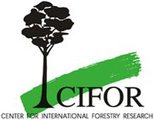As part of its ongoing efforts to support sustainable forest management (SFM) and address deforestation and forest degradation, the Center for International Forestry Research (CIFOR) released two case studies based on country assessments, one on carbon rights and the second on the impacts of shifting cultivation.
 4 May 2015: As part of its ongoing efforts to support sustainable forest management (SFM) and address deforestation and forest degradation, the Center for International Forestry Research (CIFOR) released two case studies based on country assessments, one on carbon rights and the second on the impacts of shifting cultivation.
4 May 2015: As part of its ongoing efforts to support sustainable forest management (SFM) and address deforestation and forest degradation, the Center for International Forestry Research (CIFOR) released two case studies based on country assessments, one on carbon rights and the second on the impacts of shifting cultivation.
The first study, titled ‘Taking Stock of Carbon Rights in REDD+ Candidate Countries – Concept meets reality,’ examines carbon rights within the framework of REDD+. It reveals a significant level of complexity in understanding and equitably allocating carbon rights. Based on cases from Brazil, Cameroon, Indonesia, Peru and Viet Nam, CIFOR identifies a number of possible approaches. These include governments holding all rights and distributing benefits, the allocation of carbon rights along with forest concessions, recognition of carbon rights as part of indigenous and local collective ownership, or assigning rights based on tenure and use rights.
Overall, the study concludes that allocating carbon rights is a precondition for REDD+ as it determines who has the authority to make decisions and collect payments or other benefits. However legal ambiguity and a lack of sufficient concrete on the ground experiences makes the issue of carbon rights a challenging one linked to broader land tenure and use rights reform.
In the second study, titled ‘Agriculture and Deforestation in the Democratic Republic of the Congo – A synthesis of the current state of knowledge,’ CIFOR examines shifting cultivation practices in the Democratic Republic of the Congo (DRC) in order to determine their impact on forests. In reviewing deforestation and forest degradation trends, the study challenges conventional views that shifting cultivation is a root cause of forest loss.
The assessment, based on satellite data, reveals that deforestation rates in issolated primary forests are actually quite low in the DRC. In fact, the high national deforestation rate can be largely attributed to deforestation and forest degradation in urban and peri-urban areas where shifting cultivation isn’t a significant driver. As such, the study concludes that the impacts of sifting cultivation on biodiversity and forest carbon are likely to be limited.
CIFOR is part of the CGIAR Consortium. [CIFOR Blog Post] [Publication: Taking Stock of Carbon Rights in REDD+ Candidate Countries – Concept Meets Reality] [CIFOR Blog Post] [Publication: Agriculture and Deforestation in the Democratic Republic of the Congo – A Synthesis of the Current State of Knowledge]